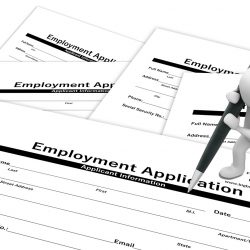7 Things To Know About Moving From San Francisco CA to Austin TX
Austin is a long way from San Francisco. Not just in terms of distance, but there’s also a considerable gap between the two cities when it comes to the weather, culture, and taxes. In light of this, moving to a new home in Austin can be quite daunting, especially when you have little to no idea about the place you’re moving into. Don’t worry, though. You’ll be at ease when you get to know more about Austin at the end of this article.
Here are seven essential things about Austin when moving from California to Texas.
1. Cheaper Cost of Living
To start on a good note, living in Austin is way more affordable. Thanks to San Francisco’s booming tech industry and small footprint, the city is extremely expensive.
- Median home cost plays a huge factor in the difference.
- You can get a house for $420,000 in Austin while you will need $730,000 to obtain one in San Francisco.
- Renting an apartment is also cheaper in comparison.
- Bus fares and gas prices in Austin sit 7% below the national average.
- As for groceries, Austin prices are 12% below the national average.
Even though you might save, it’s not the time to celebrate yet. Expect a lower salary in Austin when compared to San Francisco. Home utilities such as air-conditioning and electricity are more expensive to maintain because of the city’s scorching summers. Plus, Austin’s cost of living has been growing in tandem with its tech sector in recent years.
2. Feel the Heat
Another one of your concerns when moving to Austin might be the notorious Texas weather. It’s as hot as it gets. Coming from a moderate climate like San Francisco, you might find the scorching Texas temps unbearable at times. The average highs in both July and August reach 96 degrees, but it’s not unusual to experience weeks of triple-digit heat.
Thankfully, most businesses have the AC cranked up and blasting during the hot months, and there are plenty of ways to beat the heat. Go for a dip in the 68-degree Barton Springs Pool, chill out with ice cream from Amy’s, or grab a cold marg at the local’s favorite, Trudy’s.
3. A Quick Guide to the Neighborhoods
To help you familiarize the place, here’s a rough idea of what the communities are like:
- Downtown Austin: The heart of the city. It’s where you will find the expensive and elegant high-rises and condos.
- North Austin: The dividing line between the peaceful suburbs and the lively downtown.
- East Austin: Pretty diverse in terms of culture as it is undergoing gentrification. Lots of new hipster coffee shops and bars keep the East Side lively.
- South Austin: Favorite moving spot for outsiders. Affordable with easy access to downtown and box store shopping.
- West Austin: Best place to be if you want to live in a lush environment away from the city’s towering blocks of concrete.
4. Limited Access to Beaches
This is a major con to living in Austin, as most Californians like to say. The nearest beach along the Gulf of Mexico is a long three-hour drive from the city. But this doesn’t mean that you can’t enjoy a good swim. If you’re looking to relieve your need for a refreshing splash, you can always visit West Lake Beach along the shores of Lake Austin or one of the city’s many public pools and splash pads.
5. Music is Life
Nicknamed the ‘Live Music Capital of the World,’ Austin is a paradise for music enthusiasts. Almost anywhere in the city, you will find live performances of music from any genre. On top of that, the city holds several of the biggest music festivals in the country, omc;idomg:
- Austin City Limits
- Levitation
- JMBLYA
- Old Settler’s
- SXSW
In Austin, you can either drown in heart-wrenching melodies or unleash the inner rebel within you through music. The choice is yours.
6. Horrible Traffic
Yep, the rumors that you’ve heard are all true. Austin’s traffic stinks big time. The best way to counter this is to drive to work early then go home late at night when traffic is thin. Fighting for space during rush hour will truly test your patience. And if you’re heading to an important meeting, it’s a good idea to leave 30 minutes earlier to account for the heavy traffic.
7. BarbeQUEUE!
If you’re from Cali, you’re obviously expecting to have a taste of the infamous Franklin’s BBQ. But there’s one problem: you will have to line up for hours before you get to order. If you can’t bear to wait that long, eat your fill of brisket at La Barbeque or Mickelethwaith instead. Austin’s dotted with many restaurants that serve savory barbeque. You just need to explore!
All in all, Austin is a fantastic place. Perhaps the best in the country. San Francisco’s not that bad either, but there’s just a certain charm to Austin that makes people want to live there. Welcome to Texas!





 5. Get to Know The Locals
5. Get to Know The Locals